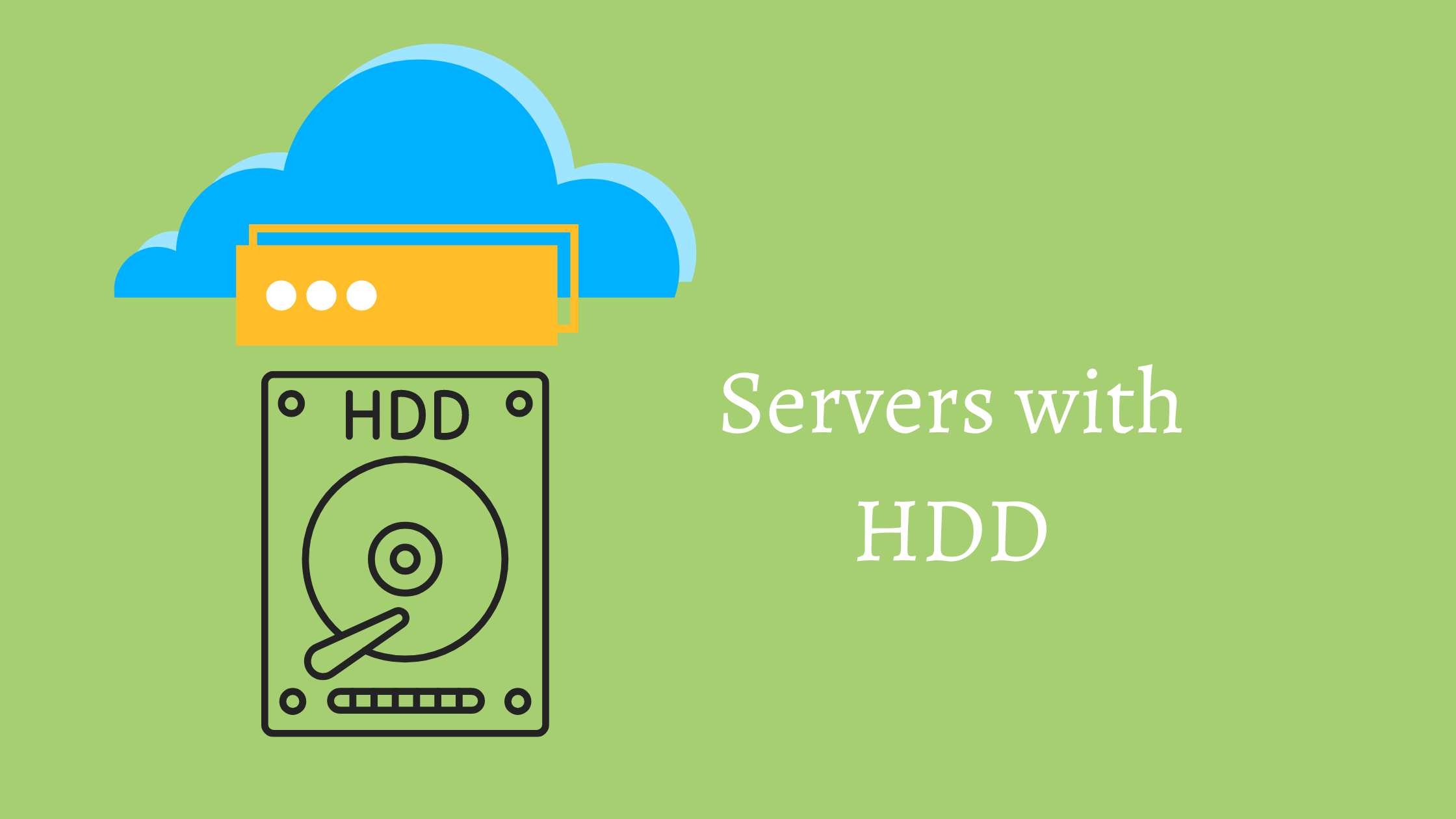
HDD drives are one of the available storage devices that are used on personal computers and servers nowadays. However, in recent years Hard Disk Drives have been many cases replaced by technologically more advanced Solid State Drives (SSD). The reason for this is that SSD drives offer a higher level of read and write speed, better durability, and generally increased performance in various aspects. This has led to a trend where SSD became almost a default option for servers with the majority of hosting providers. However, does it make sense to opt for SSD without wondering about the advantages of the alternative option? Despite the common trend, HDD drives are still good in a variety of scenarios. Today we want to quickly explore, why HDD VPS may be precisely the right hosting solution for your business.
HDD vs. SSD
As mentioned above, SSD is a newer development that is based on a more advanced technology than old-school HDD drives. While HDD drives use magnetic disks for storing information, SSD drives use microchips. Since SSD drives are not based on moving parts, this solves two problems related to HDD – the limited speed and the wearing out over time. SSD drives can work more intensively, accessing the data in the store more frequently and at a higher speed rate, and will last longer. For this reason, SSD drives are used for the majority of modern web projects, that need storage that is accessed often, whereas speed is a major priority.
The but with SSD drives is not all projects require that level of storage performance, especially considering the fact that SSD requires an additional capital investment. Therefore, before making up your mind about which type of storage to choose for your project, the best thing you can do is learn more about the perks of using an HDD.
Hard Disk Drive: benefits and usage cases
Cost
Hard Disk Drives is by default a cheaper option compared to other storage solutions. If you want to save your budget, while reaching the highest performance of your website is not the primary priority for you, you probably should consider opting for an HDD.
A vast amount of storage space
An average HDD offers a considerably bigger amount of storage space than an average SSD for the same price. In case the primary goal of your server is storing big archives of information that are not supposed to be accessed too much frequently, opting for an SSD can be a great solution. Possible cases here are actual archives that serve any purpose for not a very big audience, big photo albums on personal blogs, and others. Further possible usages of HDD include:
Media and file servers: Media files like high-resolution photographs or videos can occupy a lot of storage. The storage capacities of HDD can be thus a good match if you want to organize a streaming service or any other multimedia-related project.
Network Attached Storage (NAS): NAS devices, which provide centralized file storage and sharing over a network, often employ HDDs. NAS servers require significant storage capacity to cater to multiple users accessing files simultaneously, and HDDs provide a cost-effective solution for such requirements.
A backup server: Compared to servers for websites, backups are organized based on a bit different logic. Even if the server used to host your website runs on SSD, you might still want to use an HDD for backing up your server – the server will have to store a lot of information, while it’s not supposed to be accessed by dozens of users on a daily basis. Furthermore, the more backup storage you have, the better quality of backups you can get, saving not only the current information, but several versions of it in case the newer ones contain critical errors or older ones turn out to be better.
Data warehousing: Data warehousing refers to storing big amounts of data for corporate use. While the data is not accessed by too many users, it’s good to have space to store terabytes of information. An HDD server will be an economical yet flexible way of solving this task.
Big data: Big data refers to a set of practices in development and research that include processing vast amounts of information. While SSDs may be used for caching or frequently accessed data, HDDs are utilized for the bulk storage of large datasets.
Cold storage: Data that you are not going to use on a regular basis, but which has to be available in case of anything, is what we call cold storage. Types of data stored encompass the information stored for compliance or archival purposes.
Conclusion
Although for most websites nowadays SSD drives are the most common solutions, the variety of possible server uses is not limited to high-speed websites with dynamic content and applications. There are in fact dozens of usage cases for old good Hard Disk Drives, as we have illustrated in the article above. We hope that now you have a better understanding of which type of storage is the most suitable for your project and wish you good luck with it. Take care!